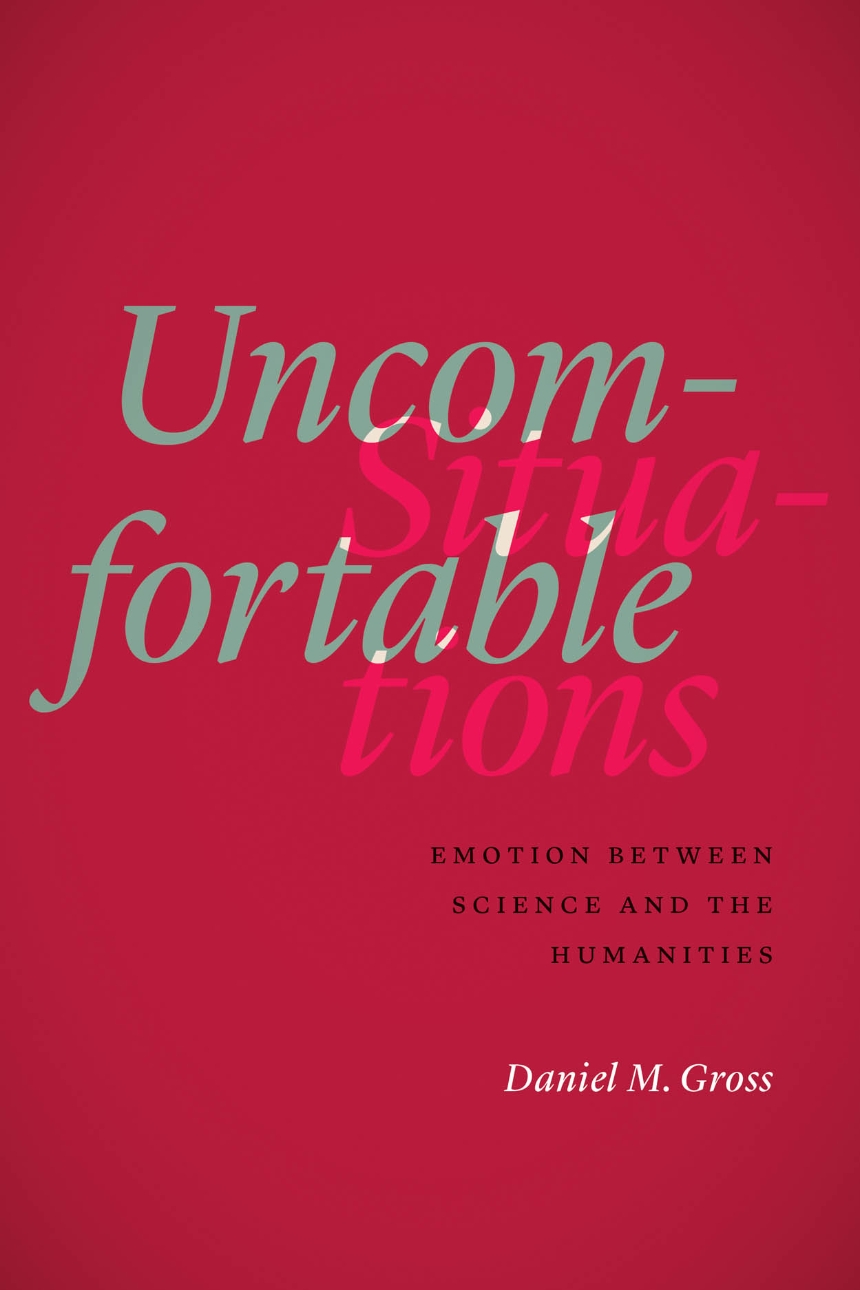Uncomfortable Situations
Emotion between Science and the Humanities
What is a hostile environment? How exactly can feelings be mixed? What on earth might it mean when someone writes that he was “happily situated” as a slave? The answers, of course, depend upon whom you ask.
Science and the humanities typically offer two different paradigms for thinking about emotion—the first rooted in brain and biology, the second in a social world. With rhetoric as a field guide, Uncomfortable Situations establishes common ground between these two paradigms, focusing on a theory of situated emotion. Daniel M. Gross anchors the argument in Charles Darwin, whose work on emotion has been misunderstood across the disciplines as it has been shoehorned into the perceived science-humanities divide. Then Gross turns to sentimental literature as the single best domain for studying emotional situations. There’s lost composure (Sterne), bearing up (Equiano), environmental hostility (Radcliffe), and feeling mixed (Austen). Rounding out the book, an epilogue written with ecological neuroscientist Stephanie Preston provides a different kind of cross-disciplinary collaboration. Uncomfortable Situations is a conciliatory work across science and the humanities—a groundbreaking model for future studies.
Science and the humanities typically offer two different paradigms for thinking about emotion—the first rooted in brain and biology, the second in a social world. With rhetoric as a field guide, Uncomfortable Situations establishes common ground between these two paradigms, focusing on a theory of situated emotion. Daniel M. Gross anchors the argument in Charles Darwin, whose work on emotion has been misunderstood across the disciplines as it has been shoehorned into the perceived science-humanities divide. Then Gross turns to sentimental literature as the single best domain for studying emotional situations. There’s lost composure (Sterne), bearing up (Equiano), environmental hostility (Radcliffe), and feeling mixed (Austen). Rounding out the book, an epilogue written with ecological neuroscientist Stephanie Preston provides a different kind of cross-disciplinary collaboration. Uncomfortable Situations is a conciliatory work across science and the humanities—a groundbreaking model for future studies.
208 pages | 16 halftones, 1 line drawing | 6 x 9 | © 2017
Literature and Literary Criticism: British and Irish Literature
Philosophy: Philosophy of Mind
Reviews
Table of Contents
Acknowledgments
Introduction Uncomfortable Situations
Chapter 1 Defending the Humanities with Charles Darwin’s The Expression of the Emotions in Man and Animals
Chapter 2 Bearing Up in The Interesting Narrative of the Life of Olaudah Equiano, or Gustavus Vassa, the African
Chapter 3 Hostile Environments in Ann Radcliffe’s The Romance of the Forest
Chapter 4 Mixed Feelings in Jane Austen’s Sense and Sensibility
Epilogue Irreconcilable Differences?
(With Stephanie Preston)
Notes
Index
Introduction Uncomfortable Situations
Chapter 1 Defending the Humanities with Charles Darwin’s The Expression of the Emotions in Man and Animals
Chapter 2 Bearing Up in The Interesting Narrative of the Life of Olaudah Equiano, or Gustavus Vassa, the African
Chapter 3 Hostile Environments in Ann Radcliffe’s The Romance of the Forest
Chapter 4 Mixed Feelings in Jane Austen’s Sense and Sensibility
Epilogue Irreconcilable Differences?
(With Stephanie Preston)
Notes
Index
